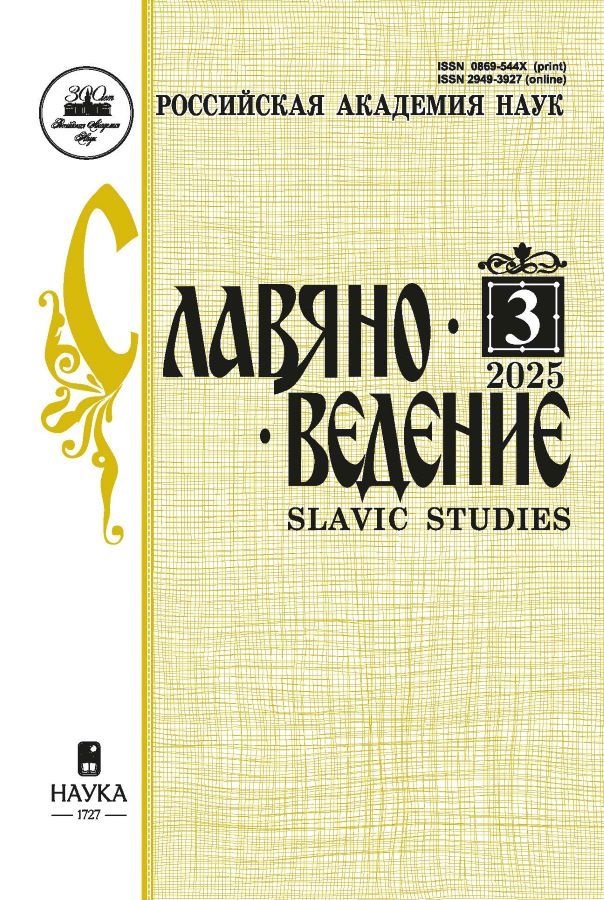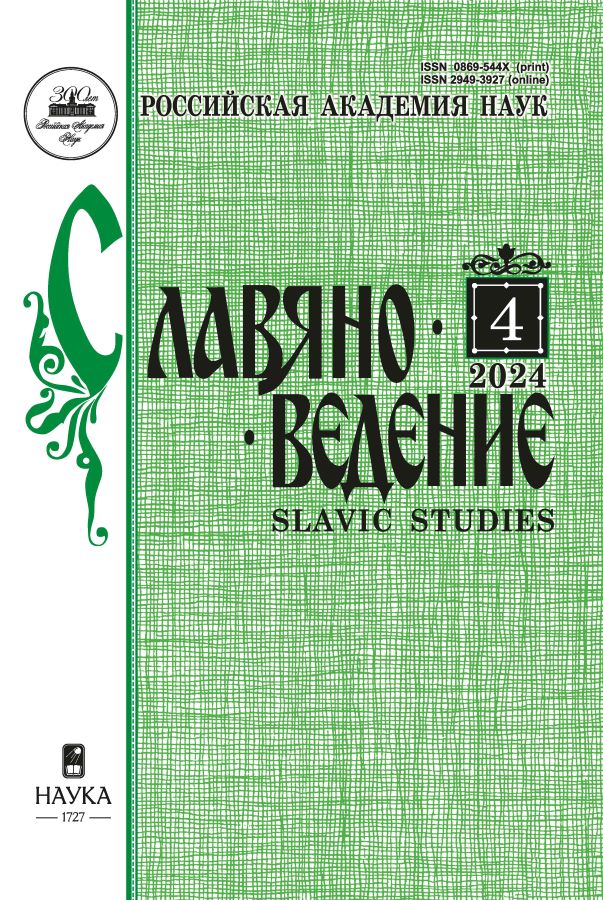Childhood Memory of Adult History. Holocaust Trauma and Migration in Z. Oryszyn’s novel «Saving Atlantis»
- Authors: Adelgeim I.E.1
-
Affiliations:
- Institute of Slavic Studies of the Russian Academy of Sciences
- Issue: No 4 (2024)
- Pages: 95-104
- Section: Articles
- URL: https://rjmseer.com/0869-544X/article/view/652952
- DOI: https://doi.org/10.31857/S0869544X24040084
- EDN: https://elibrary.ru/WWMOTN
- ID: 652952
Cite item
Abstract
Zyta Oryszyn’s (b. 1940) novel «Saving Atlantis» (2012), like almost all of her work, is born of a sense of guilt – a desire to «cover with words» the pain caused by childhood memories of the trauma of participation (unwitting complicity in the expulsion of Germans from the Regainde Lands), the trauma of witnessing (the Holocaust) and the trauma of inheritance (family memory of forced migration). Children’s consciousness, adapting to adult reality, accommodates the experience of power and powerlessness, of invader, victim and witness. From this position, the novel explores – in all its fragmentation – the autobiographical memory of the former German space functioning in the paradigm of violence, a space traumatising and generating a sense of unrootedness. The dramatic stories of several families, told from different perspectives, intersect and intertwine, forming a sorrowful labyrinth of fear, resentment, orphanhood, humiliation, and insurmountable alienness.
Full Text
About the authors
Irina E. Adelgeim
Institute of Slavic Studies of the Russian Academy of Sciences
Author for correspondence.
Email: adelgejm@yandex.ru
ORCID iD: 0000-0001-5208-0848
D. Sc. (Philology), Leading Researcher
Russian Federation, MoscowReferences
- Adel’geym I. Ye. Psikhologiia poėtiki. Autopsikhoterapevticheskie funktsii khudozhestvennogo teksta. Moscow, Indrik Publ., 2018, 648 p. (In Russ.)
- Czermińska M. Autor – podmiot – osoba. Fikcjonalność i niefikcjonalność. Polonistyka w przebudowie, vol. 1. Kraków, Universitas Publ., 2004, 721 p.
- Czermińska M. Miejsca autobiograficzne. Propozycja w ramach geopoetyki. Teksty Drugie, 2011, no. 5, pp. 183–210.
- Czyżak A. Przepisywanie siebie, przepisywanie obcości – przypadek Zyty Oryszyn. Zagadnienia Rodzajów Literackich, 2014, vol. 57 (2), pp. 99–110.
- Dąbrowski B. Postpamięć i trauma. Myśleć inaczej o literaturze «małych ojczyzn» (Na przykładzie powieści Pawła Huellego i Stefana Chwina). Nowe dwudziestolecie (1989–2009). Rozpoznania. Hierarcie. Perspektywy. Warszawa, Elipsa Publ., 2010, 530 p.
- Dylewska A. Obcość i swojskość przestrzeni Dolnego Śląska w powieści Zyty Oryszyn Ocalenie Atlantydy (2012). Prace Literaturoznawcze, 2018, no 6.
- Grynberg H. Życie ideologiczne, osobiste i artystyczne. Warszawa, Świat Książki Publ., 1998. 410 p.
- Iwasiów I. Ręka w rododendronach. Tygodnik Powszechny, 2012, no 44 Available at: https://www.tygodnikpowszechny.pl/reka-w-rododendronach-17500 (accessed: 14.12.2023).
- Krаskowska E. Niny Rydzewskiej «Ludzie z węgla» (1951) i Zyty Oryszyn «Ocalenie Atlantydy» (2012): próba lektury palimpsestowej. Wałbrzych i literatura. Historia kultury literackiej i współczesność. Wałbrzych, PWSZ im. Angelusa Silesiusa Publ., 2014. pp. 223–240.
- Lavabr M. K. Pamiat’ i politika: o sotsiologii kollektivnoi pamiati. Psikhoanaliz i nauki o cheloveke. Moscow, Progress Publ., 1995, pp. 233–244. (In Russ.)
- Miłosz Cz. Szukanie ojczyzny. Kraków, Znak Publ., 1996, 217 p.
- Ossowski S. O ojczyźnie i narodzie. Warszawa, PIW Publ., 1984. 152 p.
- Potapova O. Je. Verbal’naia reprezentatsiia kontsepta. Leksiko-semanticheskoje pole kak fragment iazykovoi kartiny mira (na materiale LSP «more»). Cheboksary, Sreda Publ., 2020, 164 p. (In Russ.)
- Vidugirite I. Geterotopii: miry, granitsy, povestvovanije. Geterotopii: miry, granitsy, povestvovanije. Vil’nius, Vil’niusskii universitet Publ., 2015, 416 p. (In Russ.)
Supplementary files











